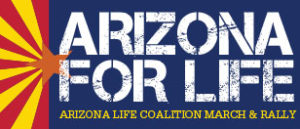
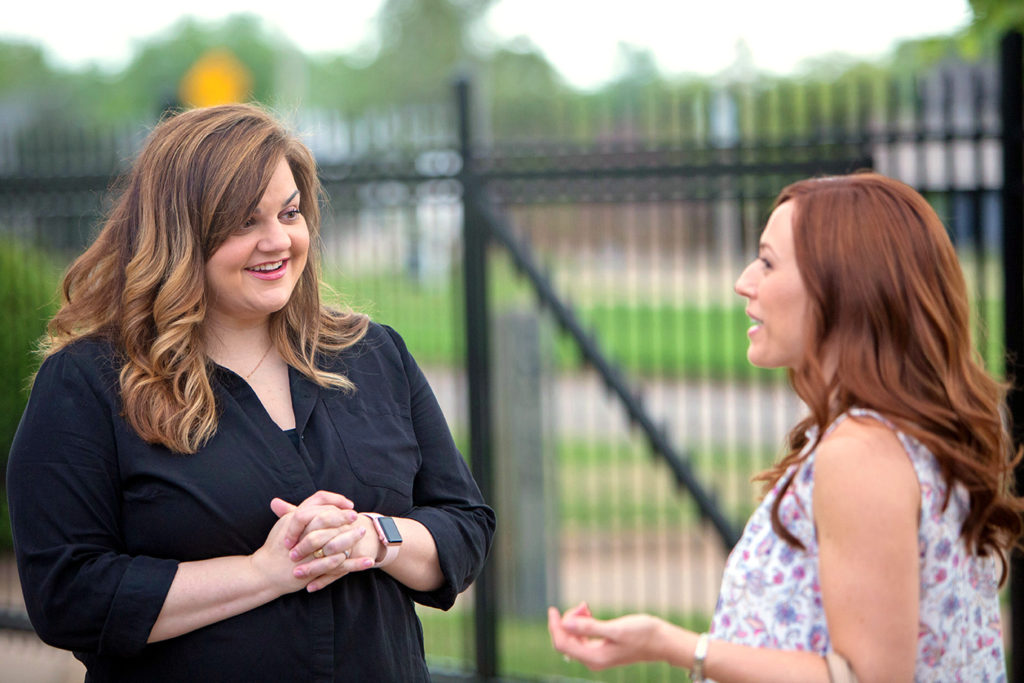
Former abortion worker to keynote AZ Life March and Rally
Just over 10 years ago, Abby Johnson walked out of a Planned Parenthood for the last time, making the decision to leave her employment with the abortion giant after being asked to assist with an ultrasound-guided abortion. Since then, Johnson has become a vocal pro-life advocate and subsequently converted to Catholicism with her husband Doug in 2012.
Johnson, whose memoir “UnPlanned” was turned into a hit movie last year, will be the keynote speaker at this year’s Arizona for Life March and Rally Jan. 18. In an interview with The Catholic Sun aired on “The Bishop’s Hour” Dec. 29, 2019, she shared her own spiritual journey, her perspectives on the pro-life movement and advice for pro-lifers. It has been condensed and edited for clarity.
Arizona for Life March and Rally
- 10:30 a.m.: Gather next to Cesar Chavez Memorial Plaza
- 11:30 a.m.: March begins
- 12:30 p.m.: Rally begins at Wesley Bolin Memorial Plaza
- 2 p.m.: Rally concludes
The Catholic Sun: What has been the most surprising thing about your journey from being an abortion worker to a pro-life advocate?
Abby Johnson: It’s been a little surprising just to see how God has really changed our family’s view about life and children. When I left Planned Parenthood, we had one child, and now we have eight. So, we’ve had this big family expansion in 10 years. It’s always a little surprising when you just really surrender yourself to the Lord and then wait to see what He does with your “yes.” He always does something amazing.
Sun: I’m curious about your own faith journey into becoming Catholic and how your work in the pro-life ministry influenced that.
Johnson: I was actually raised with pretty anti-Catholic tendencies and beliefs, so, I definitely never would have thought that I would have looked into the Catholic Church. But when we left, most of my new friends happened to be Catholic — my new pro-life friends.
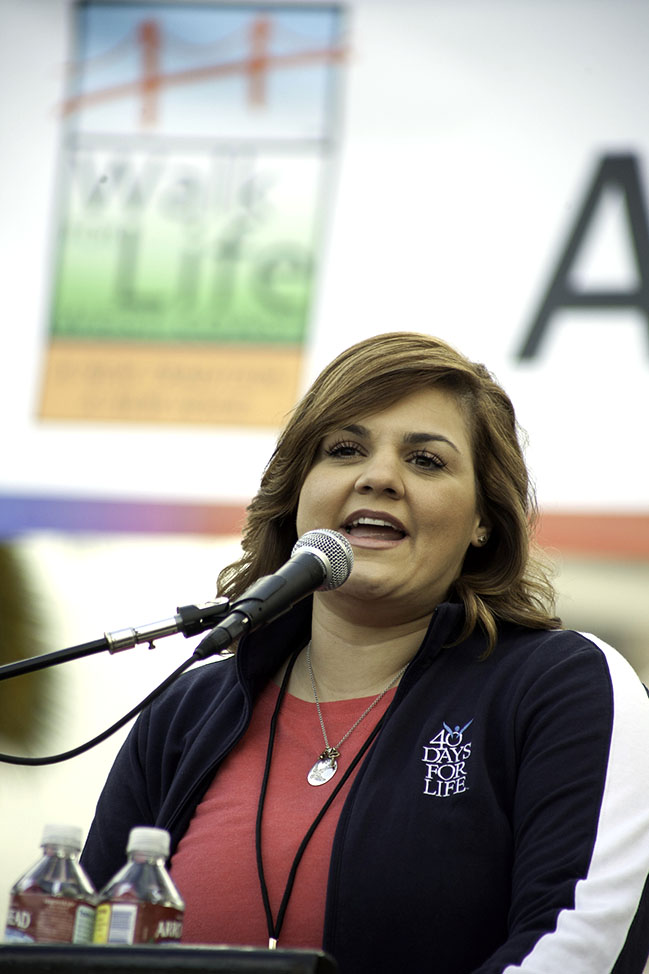
We very reluctantly decided to go to Mass one Sunday because they kept pushing us to go. We went and, at that time we didn’t know what it was, but it was something that felt very familiar, something that felt like home. We started the RCIA program not really knowing if we were going to become Catholic. I started reading [and] I came to the realization that this was true, and that this is where I wanted to grow closer to Christ. Doug and I ended up coming into the Church together Easter Vigil of 2012.
Sun: Could you speak to the ecumenical aspect of the pro-life movement?
Johnson: There’s always going to be differences, even within Protestant denominations, but the right to life, particularly the right to life in the womb, is something that really unites us all. No matter what you believe about saints or Mary or the rapture, we all recognize that life is a gift and anything that was created by God is worth defending. We’ve even got people in the movement who are secular, who have no faith tradition they align with, because they’re looking at it from a scientific point of view.
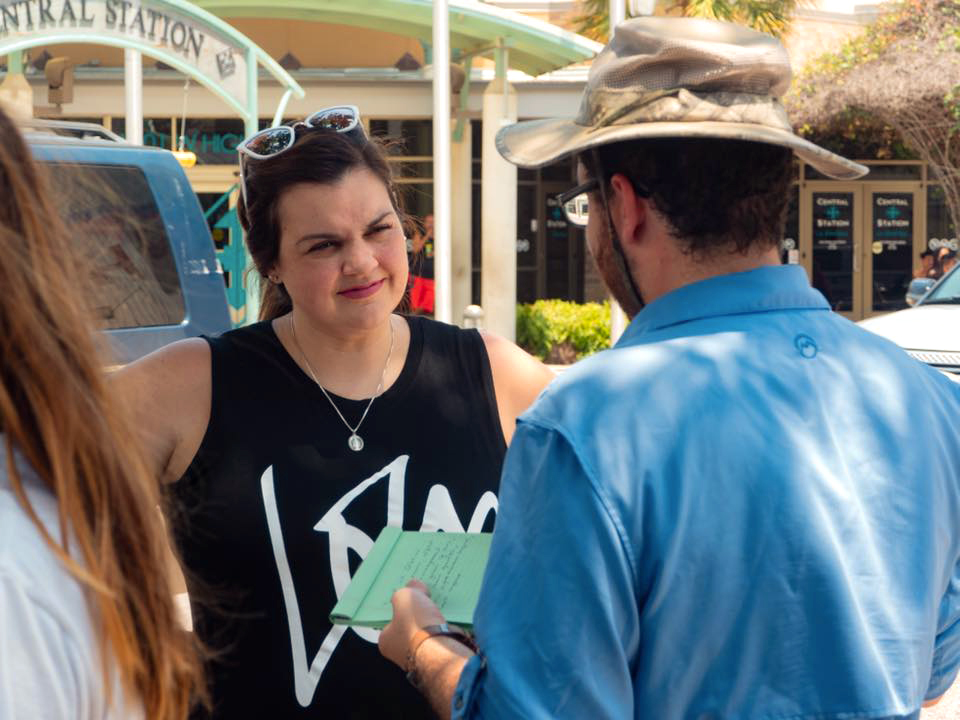
Sun: You have several times led groups of pro-lifers to provide relief at detention centers along the border. How do you see these issues as being connected?
Johnson: You don’t have to take a stand on immigration to be able to look at those in need and say, “I should help this person.” There are some basic rights that we all have as human beings, and food, shelter, safety and clothing are all part of our basic human rights. It goes beyond looking at this from a political issue, but really looking at it from a people issue.
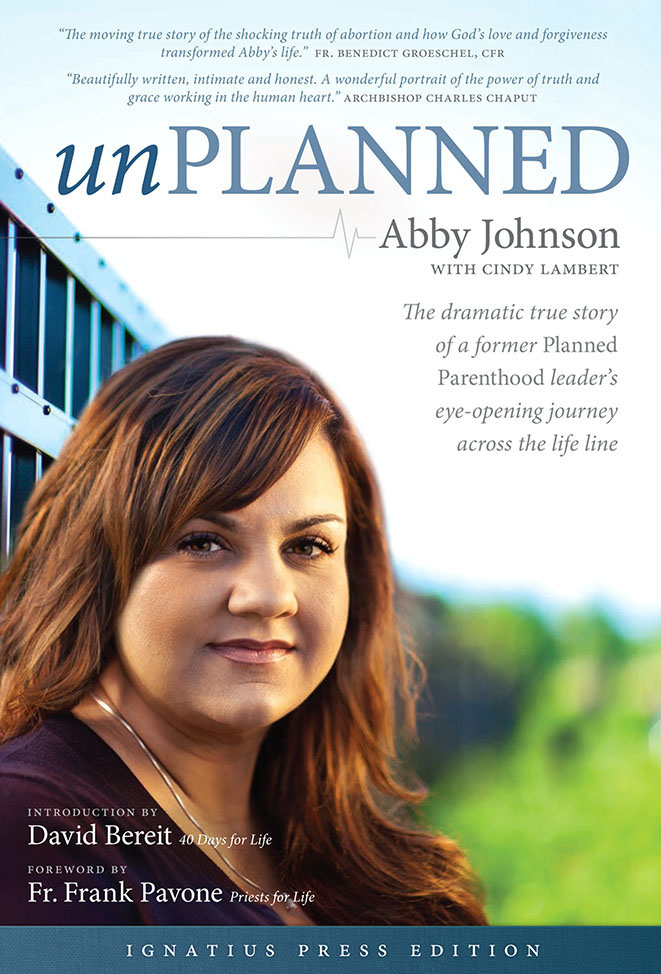
Sun: What approaches work best in conveying the pro-life message?
Johnson: We need more conversation about these difficult topics because the more and more abortion supporters that I talk to, the more and more I realize that the majority of these people are responding out of hurt. It comes across as anger, but it’s really hurt. So many of these people have been affected by abortion in one way or another. Our goal should really be to love them and to be Christ to them when we can. That’s hard, because — it happens to me, too — you become passionate about something, and it’s hard to keep your composure sometimes, especially when people are talking about killing innocent children.
I don’t think that we should ever back down from the truth, but I have found over the past 10 years that the best way to dialogue with someone who maybe thinks differently than you do is to start asking them questions. Then you can really get to the root of what’s going on and why they believe the way that they believe.
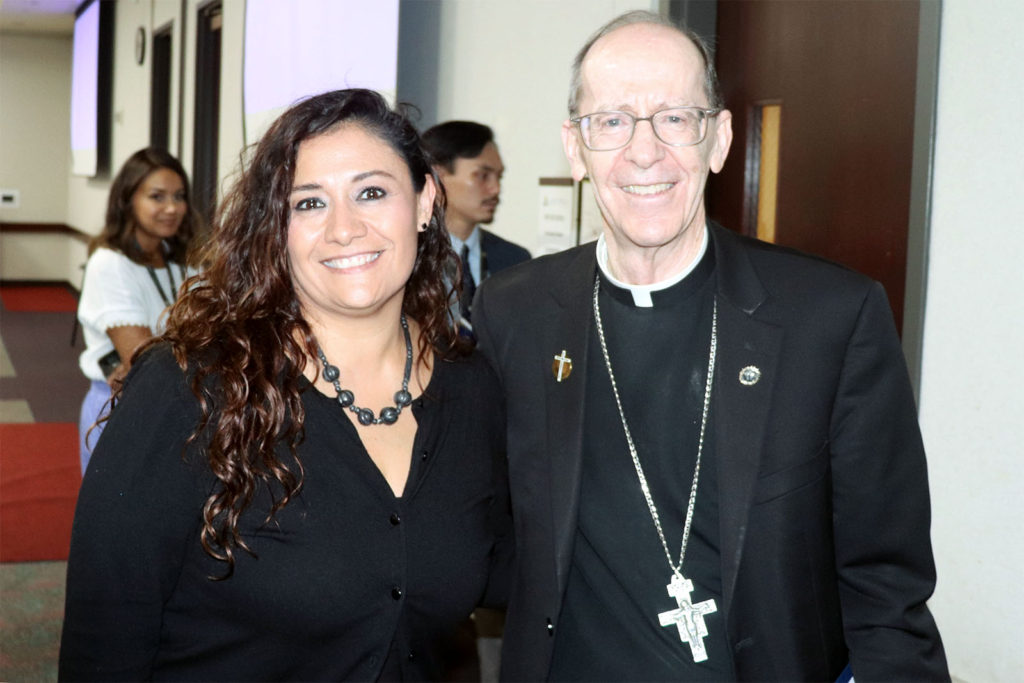
Sun: In your work with “And Then There Were None,” you work with people who experience many of the same issues that you had when you left the abortion industry. One example is a local case you were involved in with Mayra Rodriguez and helping her with leaving Planned Parenthood. What kinds of factors do you see today that are causing abortion workers to resist a pro-life message?
Johnson: I truly believe that the majority of people working inside of abortion clinics do not want to be working there. The majority of them are single mothers, [and] they need to be able to provide for their families. Our job then becomes to provide whatever is necessary to get them out of that situation and to help them get a paycheck somewhere else in a different line of work.
A lot of times these workers go in with rose-colored glasses on, believing that they’re helping women, and something happens. A woman is left bleeding on the table, and they’re refusing to call an ambulance. Or a baby is born alive, and they refused to provide resuscitation. And the glasses then start to come off. Sometimes that takes longer. It took me eight years. Sometimes it takes a few months. Mayra was there for 18 years.
Once that veil begins to lift, it’s really hard to turn back and unsee what you’ve seen, and that’s when they start to contact us. Once we get them in a position where they can talk to other clinic workers who have also left, there’s just a camaraderie there that’s really beautiful.
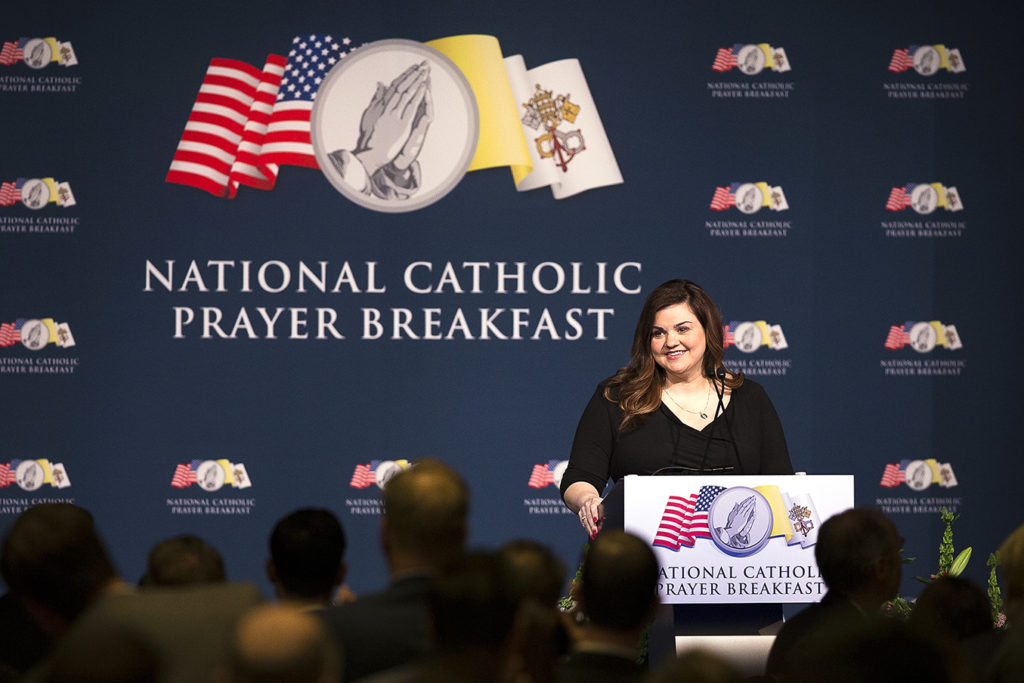
Sun: What gives you hope for an end to legalized abortion?
Johnson: The young pro-life movement gives me a lot of hope. They deal a lot with facts over emotions. Emotions are fleeting, but facts and scientific truths remain.
These are people who their first baby picture was of them in the womb in an ultrasound. I could talk to my 13-year-old daughter and she could say, “Oh, that’s my ultrasound picture of me when I was a baby in in your womb.” That’s just very black and white for her, and that’s the way that life really should be. Everybody wants to justify abortion or, make it all of these different shades of gray, but it’s really not. It’s either life, or it’s not. If it’s life and you’re intentionally disrupting that continuum of life, then it’s wrong. It’s very simple.
Our end-goal can’t simply to be let’s make abortion illegal. It must be that we’re here to make abortion unthinkable. We know that laws often dictate cultural morality. The laws are important. Elections still matter.



